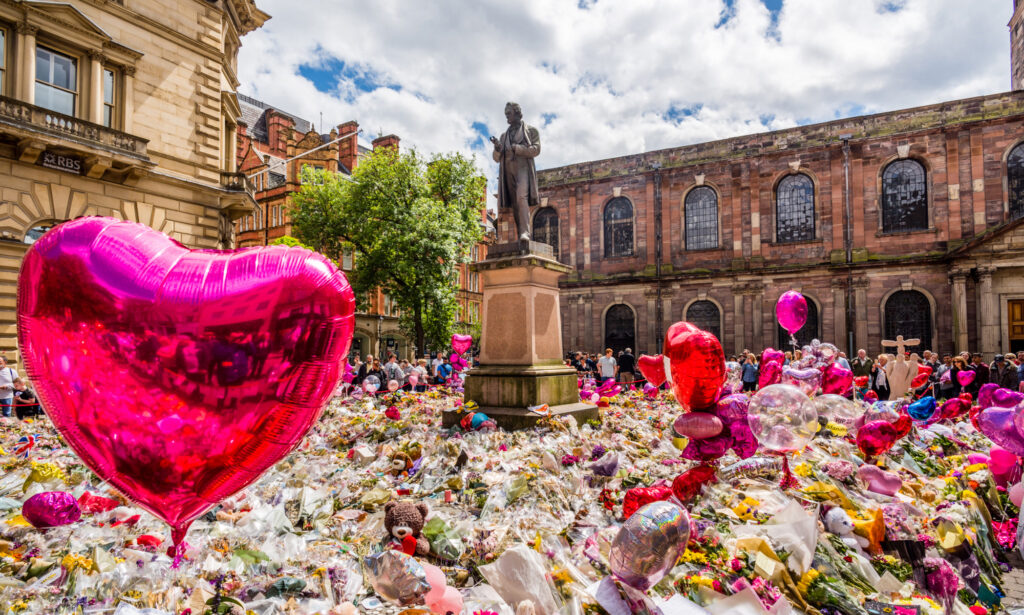
Manchester Art Gallery
Mosley St Manchester, M2 3JL
14 December 2023
Seminar Lead: Dr Kostas Arvanitis, University of Manchester
The ‘Collections of Spontaneous Memorials: Value, Ethics of Care, Trauma-Informed Practice and Vicarious Trauma’ workshop (which was supported by the British Art Network) was organised by Dr Kostas Arvanitis at the Manchester Art Gallery on Thursday 14th December 2023. It brought together fifteen museum and heritage practitioners and researchers from around the UK, who discussed conceptual, practical, and ethical challenges and issues that the formation, collection, and curation of spontaneous memorials present to museums and other cultural and heritage organisations.
Key points included:
- Spontaneous memorials produce artefacts of public grief and allow public grief to be quantified. There is not, however, a single narrative in the public outpouring of grief. The meaning of the memorial is strengthened through accretion, as the elements fall into discrete categories and are repeated many times over.
- Museum professionals approach their work on the memorials as part of the broader societal response to the event. This creates a framework of decision-making and action that bridges their sense of personal and social responsibility and professional competence.
- Museum professionals attend and respond to the needs of the people that are seen as immediate stakeholders of this work (such as families of the bereaved and survivors), and often place those needs before the museum sector’s standard principles and processes of collection management. In practice, this means treating collecting and the collection as an extension of the spontaneous memorialisation, so that those individuals have the opportunity to participate in it in their own time and on their own terms.
- Trauma-informed practice in museums and related cultural organisations needs to be practised on an individual, team, and organisational level. Trauma-informed practice is not a tick box exercise and needs to be thoughtfully engaged with on a case by case basis with each organisation and team.
The event identified some key strands of follow-up work (including a symposium in the summer of 2025):
- Trauma-informed museum practice in museums
- Ethics of care in collecting, managing and engaging audiences with collections of trauma
- Understanding and addressing vicarious and secondary trauma in museum policy, practice and training.
For more information, please contact Dr Kostas Arvanitis, University of Manchester, [email protected]




